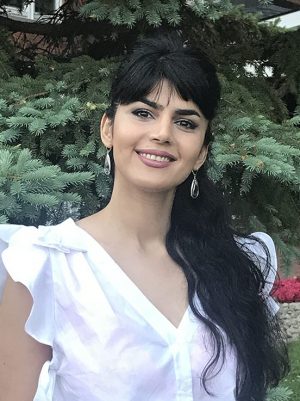
Sahar Hashemgeloogerdi
University of Rochester
PhD Candidate
Sahar is a PhD candidate at the Electrical and Computer Engineering department, University of Rochester. She is primarily interested in audio and acoustic signal processing and machine learning with the emphasis on modeling methods, audio enhancement algorithms, and analysis techniques with applications to healthcare, security, intelligent assistance, and media. Her PhD research has been awarded the Microsoft Research PhD Dissertation Grant in 2018. She is also a winner of the International Student Challenge Problem in Acoustic Signal Processing contest presented by the ASA in 2014.
Research Abstract:
Physically Inspired Algorithms for Modeling and Audio Enhancement of Acoustic Systems
My research blends audio signal processing, machine learning, and optimization techniques with the physics of auditory systems to develop algorithms that produce lifelike acoustic experience, facilitate the human perception of sound, and provide audio security. The capability of an audio system in producing lifelike acoustic experiences significantly depends on the accuracy and computational efficiency of the underlying modeling and audio processing algorithms. My research has focused on the development of methods and algorithms that accurately model highly reverberant acoustic systems and process acoustic signals using as few parameters as possible. Such accurate yet computationally efficient modeling and processing algorithms are of essential interest in a wide variety of applications ranging from virtual acoustics to healthcare. My main contribution is the development of algorithms which provide high accuracy over a wide range of frequencies in real-time, relying on orthonormal basis functions and time-frequency representation of an acoustic system. The outcomes of my research are anticipated to have a notable impact on healthcare (hearing aids, speech enhancement), security (speaker recognition, monitoring & surveillance), intelligent assistants (Apple Siri, Google Assistant, Amazon Echo, Microsoft Cortana), and audio acquisition and reproduction schemes (virtual acoustics, spatial audio reproduction).